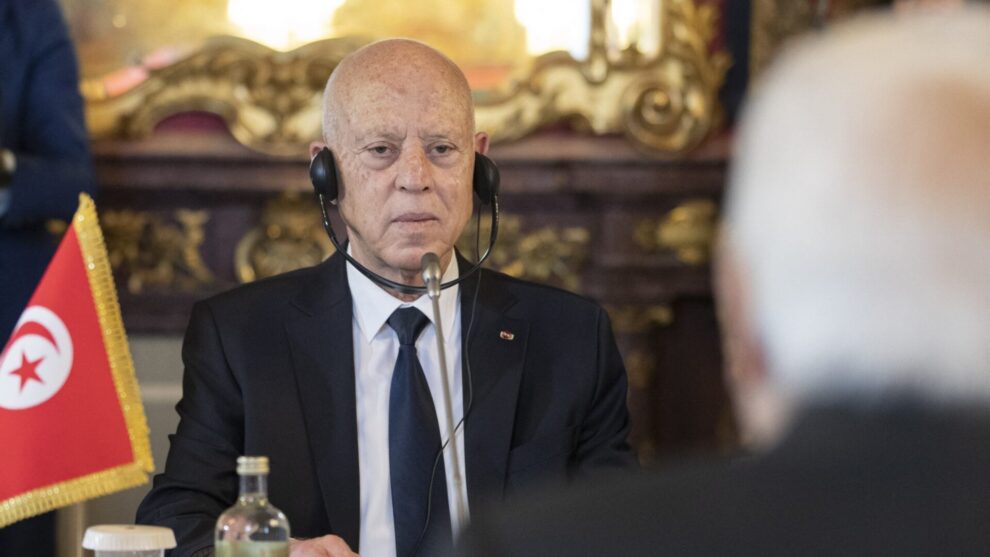Tunisian authorities have placed senior member of the Ennahda party Abdel Karim Harouni under house arrest in the latest crackdown by Presient Kais Saied against critics, the country’s main opposition coalition announced late on Saturday. According to his lawyer, the “communication did not include any details about the reasons for imposing house arrest”. Harouni, 62, heads the Shura Council, the highest-ranking body in the Ennahda party, whose members made up the largest bloc in the now suspended parliament.
The Salvation Front coalition said the houses arrest was an “arbitrary decision”. Earlier this year, Tunisian authorities also arrested Ennahda party leader Rached Ghannouchi, who is also one of the most outspoken critics of Saied. Saied unilaterally suspended parliament and dissolved the government in July 2021, a move he marketed as a step towards “true democracy”, involving a clean break with the political class, the institutions and “corrupt elites”.
His critics have branded the power grab as a coup. The decision by Tunisian authorities to go after yet another opposition politician comes just after the African Court on Human and People’s Rights (AfCHPR) ordered the government to allow detained political prisoners access to their lawyers and doctors.
On Friday the AfCHPR ordered the Tunisian government to inform political detainees, their families and lawyers of the reasons for their continued detention, specifically to provide them with “adequate information and facts relating to the legal and factual basis for the detention”.
The court has given the Tunisian government 15 days to “eliminate all barriers” political prisoners face, which also includes the high profile former speaker of parliament Ghannouchi. The court has found that the continued detention of the individuals could result in “irreparable harm” and that they are in a situation of “imminent danger”.
The court also held that “the procedures followed in the arrest and imprisonment of the [detainees] are not clear especially in terms of clarifying the charges that they are answering”. Saied’s power grab in 2021 ushered in a campaign of detentions that has swept through the political opposition and the judiciary.
An increasingly repressive society and a rapidly escalating economic crisis have led to a surge in people fleeing the country along dangerous smuggling routes. As a fiery populist, Saied billed himself as an outsider who could take on Tunisia’s political parties, which oversaw growth in democracy but also mounting economic challenges in the country of 12 million. Despite promises to correct the downward trajectory, Saied has overseen skyrocketing inflation and shortages of basic goods.
Source: MEE









